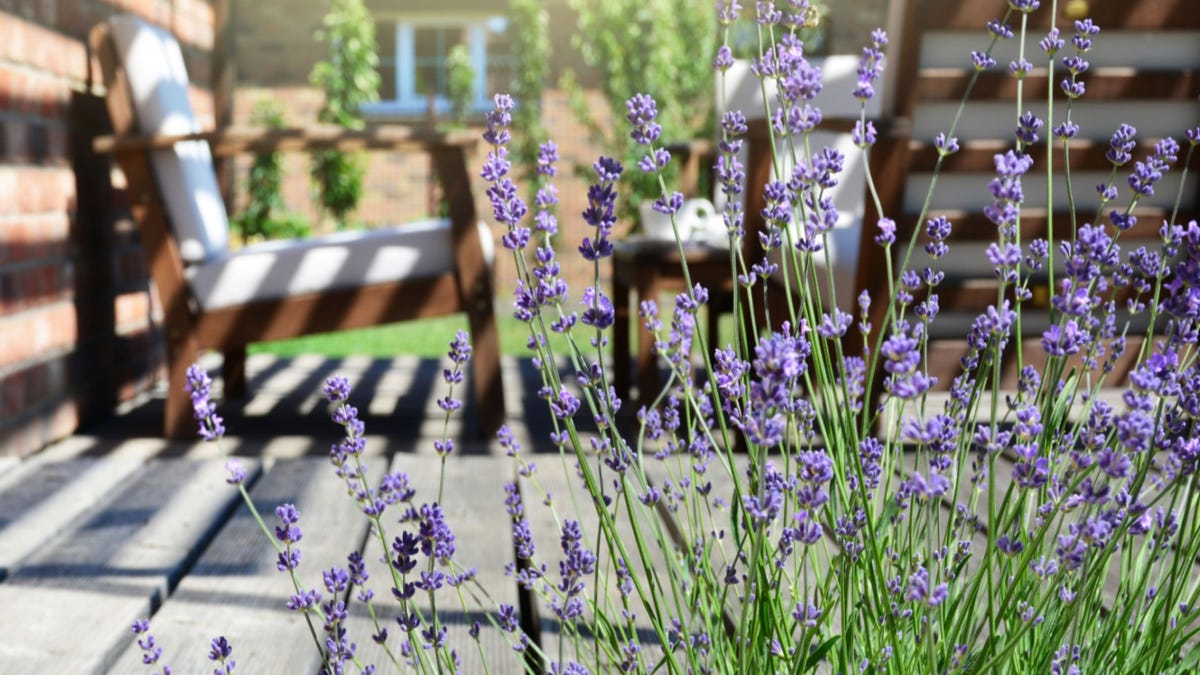Mosquito Repelling Plants Are a Lie
You really can’t go anywhere on the internet without running into lists of the 17 or 25 best mosquito repelling plants, or mosquito repelling plants that are good in the shade, or that are nontoxic to dogs, or whatever....


Photo: CharMoment (Shutterstock)
You really can’t go anywhere on the internet without running into lists of the 17 or 25 best mosquito repelling plants, or mosquito repelling plants that are good in the shade, or that are nontoxic to dogs, or whatever. It seems like people only want to talk about mosquito repelling plants, and never stop to think: wait a minute, do plants really repel mosquitoes?
No! They don’t! At least not in the way you think. The implication in all these lists (and in content-free TikToks like the one where somebody takes a video of themselves buying a lavender plant) is that simply planting one of these supposedly bug-repellent plants will keep mosquitoes (or other pests) away from your yard.
But that idea is mostly wishful thinking.
There is a
grain of truth here: S
ome plants do
contain oils that can potentially repel mosquitoes, but you would need to actually put the oils between yourself and the mosquitoes somehow. And that’s easier said than done.
Research, like this study on malaria vectors in Kenya, has shown that potted plants (including lime basil and common lantana) can slightly reduce the number of mosquitoes around a bed, but you need to bruise the leaves of the plants and completely surround your bed with them—and even then, the effect is not strong enough to stop mosquitoes from biting you; it only reduces their number slightly.
There are also studies like this one showing that chemicals extracted from plant oils, when used in diffusers and candles. can repel mosquitoes somewhat, and some plant oils can work as mosquito repellents when applied directly to the skin. This study found that citronella, clove, and patchouli oils can work well enough to be effective repellents—defined as working for at least two hours—but they need to be undiluted to work best. (Other plant oils tested did not work well enough to be considered truly repellent.)
By the time we’re talking about rubbing large quantities of undiluted essential oils on your skin, I think we’re pretty far away from the fantasy of planting a few lavender bushes next to your back deck to enjoy a mosquito-free cookout. (Not to mention that essential oils are expensive, can be irritating to skin, and often evaporate quickly.) If you want to apply something to your skin to prevent bug bites, buy one of the plant-based bug sprays that are EPA-registered and actually effective.
How to keep mosquitoes away from your porch or deck
So if you can’t keep mosquitoes away with lavender or citronella plants, what can you do to make your backyard gatherings less of a mosquito magnet?
First, look around your yard for sources of stagnant water. These could be birdbaths, buckets or flowerpots that collect rainwater, kiddie pools, or other toys or objects. If you can’t stop them from collecting water in the first place, the CDC recommends dumping them out and cleaning them weekly.
You can buy insecticides to kill mosquitoes. Larvicides can kill baby mosquitoes in water; they’re intended for water that is not for drinking and that you can’t easily dump out (for example, a rain barrel or a pool cover that collects water). Adulticides kill adult mosquitoes where they rest, usually on the undersides of plants, underneath decks, and under outdoor furniture. Adulticides come in sprays, coils, and foggers.
Finally, the simplest solution for when you have guests over and want to enjoy a porch beer without getting eaten alive: a box fan. Mosquitoes aren’t strong enough fliers to fight the current generated by a fan, and if it’s a hot summer day you’ll enjoy the breeze yourself. Offer your guests a spritz of DEET when they arrive, and you’ll be far more mosquito-free than if you were hoping you’d be protected by a few garden plants.

 FrankLin
FrankLin 
































